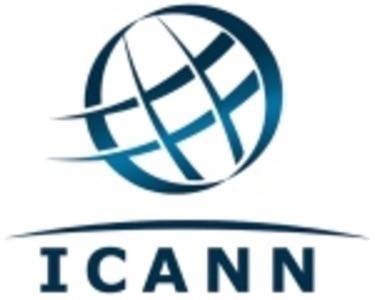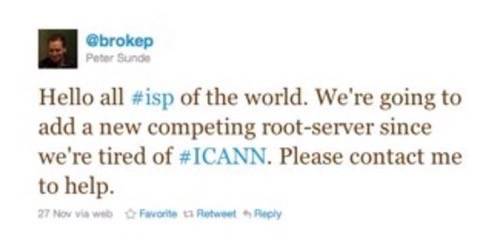With the news of Pirate Bay convictions upheld in Sweden, website seizures in the U.S., and now threats to “do something” about Wikileaks, it’s no surprise that there are now calls for an alternative DNS, one outside the reach of governments and of ICANN.

The DNS, or Domain Name System, is one of the foundational elements of the Internet, responsible for translating the numbers in IP addresses to the more human-friendly names. And ICANN, the Internet Corporation for Assigned Names and Numbers, is a nonprofit organization tasked with managing both the IPv4 and IPv6 Internet Protocol address spaces, maintaining the registries of IP identifiers, and managing top-level domain names.
Pirate Bay co-founder Peter Sunde recently tweeted that he long ago lost his trust in ICANN, arguing that the “core of the DNS problem is not ICANN. It’s that governments and companies can control ICANN (i.e. it’s centralised).” Indeed, it appears as though the U.S. government has ordered ICANN to remove the names of copyright infringing websites from the global DNS. So in response, Sunde has called for an alternative – and most importantly, distributed – domain name system.

A Distributed Alternative to the Domain Name System
Arguing that “we want the internet to be uncensored,” Sunde has formed a group to work on the project, a DNS that would not utilize a centralized root but would instead take advantage of peer-to-peer technology. He writes, “By using existing technology for de-centralisation together with already having a crew with skilled programmers, communicators and network specialists, an alternative system is not far away. We’re not going to re-invent the wheel, we’re going to build on existing technology as much as possible.”
The technology may exist to make a BitTorrent-based alternative possible, but such a system would face a massive uphill battle to provide a viable alternative – in terms of delivering speed and performance, but also in terms of gaining widespread adoption. And as Ars Technica notes, one of the biggest problems will be around the ownership of domain names. “The stakes are high,” writes Iljitsch van Beijnum, “even a small fraction of the traffic of a popular site, or even just an interesting search term, can be worth a lot of money. It’s hard to imagine that with such high stakes there wouldn’t be any abuse of such an open system, or at the very least, widely diverging points of view of what’s best.”
Despite these obstacles, Sunde’s proposal has been met enthusiastically in some circles, which considering the intersection of politics and web technologies over this past week, is hardly a surprise.

















